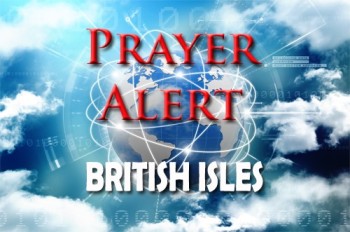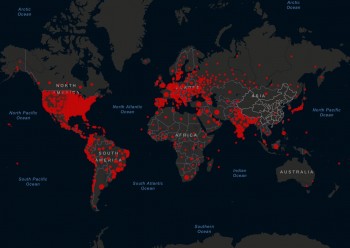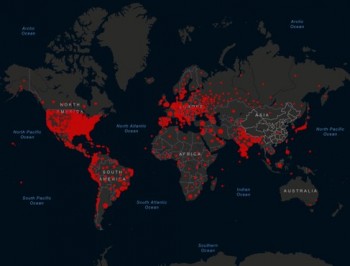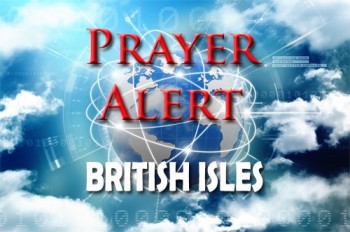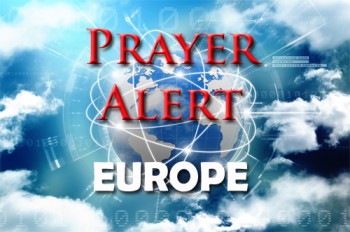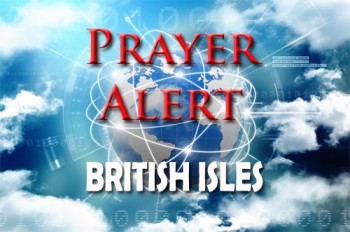Displaying items by tag: Covid vaccines
Regular vaccines for all not needed, says expert
‘Vaccinating everyone on the planet against Covid-19 regularly every four to six months is not sustainable or affordable; the most at risk should be identified and prioritised instead’, says Professor Sir Andrew Pollard, who helped develop the Oxford-AstraZeneca vaccine. He said the vaccine rollout had gone ‘extremely well’ in the UK, but other parts of the world were falling behind. ‘We haven't even managed to vaccinate everyone in Africa with one dose, so we're certainly not going to get to a point where providing fourth doses for everyone is manageable. There is not full certainty on whether another booster might be needed in the UK.’ He said the UK would be in a good position if variants continued to lead to milder disease, as has been the case with Omicron. Boris Johnson said the Government doesn't see any data to suggest that further restrictions would be the right approach in England, but the public should be in no doubt it will be a difficult time for the NHS.
Covid-19 Pandemic Prayer Update – July 2021
A July prayer report looking at the opportunities and challenges of vaccinations, Covid-19 Hot Spots and some suggested Prayer Pointers with links to resources:
As of 6th July, the total global figure for people infected by Covid-19 stood at 184.3 million according to Johns Hopkins University. In addition to this, the recorded number who have died totalled 3,986,701. After peaking in late April, cases declined throughout May and have remained steady in recent weeks
Covid-19 hot spots
Here are those countries / regions which are currently showing high levels of infection.
Brazil, India and Colombia currently have the highest case rates on a weekly basis, however these are declining relative to previous weeks. Indonesia has seen a 35% increase in cases over the last week. Other countries showing particular spikes include Spain, Myanmar and Russia whilst Africa recorded its record number of cases over the past week. There were 36,000 new infections reported per day, driven by a surge in South Africa.
Indonesia is suffering a serious rise in cases, its medical infrastructure is struggling to cope and is teetering on the brink of collapse as jammed hospitals turned away patients, forcing desperate families to hunt for oxygen tanks to treat the sick and dying at home. CNN reports that more than 60 people died in a hospital last weekend (3/4 July) after oxygen supplies nearly ran out, as the country battles a severe wave of covid-19 that authorities say is driven by the more infectious Delta variant. The world's fourth most populous nation is facing one of Asia's worst outbreaks, with a record high of 27,913 new cases reported on Saturday 3rd July. The islands of Bali and Java -- which includes the capital Jakarta -- went under emergency lockdown Saturday to curb the spread of the resurgent virus. In a statement, the Sardjito hospital on Java said 63 patients died between Saturday and early Sunday after it nearly exhausted its oxygen supplies. The hospital said it had sought more oxygen for days before the incident, but virus patients streaming in since Friday had pushed it beyond its capacity, consuming oxygen faster than expected.
The devastating wave of infections that recently overwhelmed India has passed however the full impact and devastation caused by this is still only now emerging. India remains the second worst-hit country in the world by the pandemic after the United States. The overall case count officially now stands at 30,619,932 cases, and 403,310 deaths although many fear it may be 5 or 6 times higher than this. Doctors have demanded additional protection after being subject to violence and assaults by frustrated and angry families whilst a lack of access to online learning, particularly for poorer girls, has led to research suggesting millions of girls could drop out of secondary school as a result of the pandemic.
Brazil continues to see great suffering in 2021. Thankfully, cases have decreased more rapidly over the last 2 weeks, although they still remain above levels seen last September. In total, Brazil has seen 18.79 million cases and 525,112 deaths.
Although there has been a slight improvement in recent days, as the pandemic recedes in much of the world, according to the World Health Organisation, Latin America has become the driver of global infections. Mid June, the region recorded nearly half of the world’s 10 200 daily covid-19 deaths. In Bolivia, Chile, and Uruguay, coronavirus cases are surging and hospitals are filling with younger patients aged 25-40 years old, said Carissa Etienne, director of WHO’s Latin American office, the Pan American Health organisation (PAHO). Bolivia, Colombia, and Paraguay all recently saw record covid-19 fatalities in the last fortnight. Venezuela reported 1300 new covid-19 infections and 18 deaths on 1 July. Hospital data show that the actual figures are at least four times higher than those published by the authoritarian government, say public health experts and doctors.
New waves and Variants
It seems that new variants are emerging monthly, each presenting new and concerning challenges. Last month much of the focus was on the Delta variant which now appears to be the dominant worldwide strain. Four major Australian cities went into a four-day "circuit-breaker" lockdown this week to try and stop it from spreading. Australia's Prime Minister, Scott Morrison, announced looser vaccination policies to try to get more people immunized before the variant could spread. Ireland delayed plans to resume indoor service in bars and restaurants and US officials urged Americans to get vaccinated to stop its spread. The World Health Organization says the Delta variant, also known as B.1.617.2, has spread to at least 85 countries since it was first identified in India last fall. At least half of the United States is seeing a rise in COVID-19 cases as the highly transmissible Indian 'Delta' variant continues to spread, according to a new analysis of Johns Hopkins University data.
It is feared that the delta variant is responsible for much of the new, third wave affecting Africa, but the picture is unclear in a number of countries as testing – let alone genomic sequencing – is sparse. Dr Ayoade Alakija, co-chair of the African Union’s Africa Vaccine Delivery Alliance, has said “We are in acute emergency mode – we need to prepare oxygen, field hospitals, health workers, declare humanitarian emergencies in countries where the systems are overwhelmed, and have surge capacity people coming in if needs be,” she said. She said that the pandemic in Africa was “silent”, with people suffering or dying at home . “In India we had the burning funeral pyres that the whole world looked at in horror,” she said. “This is like watching bodies slide under water, a silent mass drowning where people are reaching their hands up for help but no-one is watching and nobody can see.”
The latest variant to be highlighted by the World Health Organization, named Lambda, has now been found in at least 27 different countries. It is especially widespread across South America, having first appeared in Peru in August last year, and is accounting for more and more cases in these countries.
Having found its way to Europe, where there is already an ongoing battle against the Delta variant, due to lack of study it is still unclear how major a cause of concern it might be. It is not yet listed as a ‘variant of concern’, rather a ‘variant of interest’ by the WHO, meaning it has been identified as causing transmission or detected in multiple countries.
Some scientists fear that the Lamda variant that is ravaging Peru may be resistant to vaccines however there is no definitive data to support this yet.
This New York Times article provides a useful and detailed analysis of the nature and scientific understanding of variants.
Vaccines
“The global failure to share vaccines equitably is fueling a two-track pandemic that is now taking its toll on some of the world’s poorest and most vulnerable people,” said Tedros Adhanom Ghebreyesus, the director-general of the World Health Organization (WHO).
The emergence of variants has shone new light on the vaccination programmes as it is clear that without vaccination, the chain of transmission, hospitalisation and death will not be broken. Whilst many poor nations are crying out for vaccinations for the most vulnerable, some rich nations have begun vaccinating teenagers where the risk is very small.
African countries are also suffering from a crippling shortage of Covid vaccines. Only 15 million people, just 1.2 percent of the entire African population are fully vaccinated, according to the WHO.
The African Union special envoy tasked with leading efforts to procure Covid-19 vaccines for the continent has blasted Europe on Thursday, saying that “not one dose, not one vial, has left a European factory for Africa”. Strive Masiyiwa took aim at the global scheme COVAX which was run by various organisations such as WHO and UN that was meant to distribute vaccines to low- and middle-income countries.
Masiyiwa said COVAX had promised to deliver 700 million vaccine doses to Africa by December. But at mid-year, Africa has received just 65 million doses overall. Less than 50 million doses via COVAX have arrived.
Moreover, even those Africans who have been fully vaccinated may not be able to travel freely in a post-pandemic world. European Union has recently imposed restrictions on people vaccinated with Covishield, the Indian-produced version of the EU-accepted AstraZeneca vaccine. Dr Ayoade Alakija is the co-chair of the African Union’s Africa Vaccine Delivery Alliance told BBC that if the decision is confirmed, that would amount to what she calls “vaccine-apartheid”. “What it feels like there is a two-tier vaccine system in this new world… where we are living in one world, the pandemic is almost over, in another world the pandemic is quite frankly beginning.”
Latin America and the Caribbean continue to be hit by increasing numbers of Covid-19 infections and deaths, highlighting the stark global inequalities in access to vaccines, officials from the World Health Organization warned.
At a time “when we are seeing some reprieve from the virus in countries in the Northern Hemisphere,” Carissa Etienne, the director of the W.H.O.’s Pan American Health Organization, said at a news conference that for most countries in the Southern Hemisphere, “the end remains a distant future.”
Only one person in 10 has been fully vaccinated against Covid-19 in Latin America and the Caribbean, she added, calling it an “unacceptable situation.”
“Access to Covid-19 vaccines shouldn’t be a privilege for a few but a right we all share,” Dr. Etienne said.
Current figures show that 3.25 vaccination does have been administered, 895 million people are fully vaccinated, representing 11.5% of the world population.
Let’s Pray… Let us continue to declare that the novel coronavirus is defeated by the blood of Jesus.
We pray for divine intervention and for God's name to be glorified even as each nation and government tries its best to prevent or control the emergence of new waves of infection and finally arrest this epidemic.
We pray that individuals, leaders and nations focus on the needs of others rather than themselves, and that cooperation and compassion lie at the heart of the world’s response to the crisis.
We pray for our scientists. In particular we pray for those assessing and communicating risks associated with vaccines, that they be filled with wisdom and understanding. We pray too for those investigating, sequencing and analysing new variants.
We pray especially for the nation of Indonesia. We stand with our brothers and sisters who are living amidst this uncertainty. We pray in particular for those providing medical support in the most difficult of times.
We release wisdom, skill, and integrity upon our leaders, particularly as they grapple with the complexities, challenges and many voices that seek to influence them.
We pray that leaders and nations will see their moral duty to the world’s poorest and most vulnerable people and back this up with action not just words.
We pray for protection, wisdom and strength, for those working to bring treatment and comfort to the sick and their families.
We pray for individuals struggling to decide whether to receive the vaccine. We ask that their fears be settled and that the information they receive be truthful and honest.
We pray special grace and help for the vulnerable and lesser-developed nations.
We pray for a safe, effective, and affordable vaccine to be released soonest and the continued development of a range of vaccines to supply the whole world
We continue to release faith, hope, and love over the peoples of the world. May the Church seize this opportune time to manifest Jesus our Lord and Savior to those who are seeking answers and peace.
Covid-19 Pandemic Prayer Update – June 2021
A mid – June prayer report looking at the opportunities and challenges of vaccinations, Covid-19 Hot Spots and some suggested Prayer Pointers with links to resources:
As of 13th June, the total global figure for people infected by Covid-19 stood at 175.7 million according to Johns Hopkins University. In addition to this, the recorded number who have died totalled 3,796,642. From a peak of worldwide daily cases in early January, numbers declined steadily until mid-February when they started to rise again, more recently exceeding the January peak.
Covid-19 hot spots
Here are those countries / regions which are currently showing high levels of infection.
The devastating wave of infections that overwhelmed India does appear to be slowing. India is the second worst-hit country in the world by the pandemic after the United States. The overall case count officially now stands at 29,439,989 cases, and 370,407 deaths although many fear it may be 5 or 6 times higher than this. The devastating second wave that engulfed India, one of the worst experienced by any nation, may finally have abated, but trauma and death has been left in its wake. There was barely a family in India left untouched by the virus, and with Covid hitting adults much worse than children, it has resulted in thousands becoming orphans in the past few weeks.
Brazil continues to see great suffering in 2021. Cases have increased since early February, peaking at the start of April at over 100,000 per day. The current daily average of 75,778 cases per day is slowly declining, but still exceeds that of the first wave in July 2020. Total cases have exceeded 17.3 million with 486.358 deaths. Having peaked at 4249 daily deaths on 8th April, the figure still remains high with over 2008 daily deaths still being reported. Whereas many countries have seen sharp declines following a peak, Brazil has been much slower at reducing cases and deaths over time.
South America continues to experience some of the highest levels of death due to COVID. Over the week 6th-13th June, Paraguay, Uruguay, Argentina and Colombia have all experienced some of the highest levels of death relative to population size, although thankfully cases are declining in all of these countries.
The US continues to be the country with the highest number of confirmed cases and deaths related to Covid-19 with figures at around 34,315,873 and 614,955 respectively. Thankfully the daily infection rate has fallen dramatically from a 7 day rolling average high point of nearly 250,000 cases in early January to just over 16,000 cases mid-June (John Hopkins) and daily deaths were reported as 308 on 13 June .
Cases in European countries are relatively stable, having declined over the last 6 weeks in most countries. There are signs of small rises in Russia and the UK amidst debates about the speed of easing restrictions and the possible impact of new variants.
New waves and Variants
New variants of COVID 19 continue to be the source of discussion and focus, not least as their interaction with the vaccination programmes and new waves of infection become a greater priority. The World Health Organisation have recently introduced a new naming convention for variants of Interest (VOI) and variants of concerns (VOC). "No country should be stigmatized for detecting and reporting variants," Maria Van Kerkhove, WHO's technical lead for Covid-19 response, wrote in a Twitter post. Rather, a WHO expert panel recommends using Greek alphabet letters to refer to variants, "which will be easier and more practical to discussed by non-scientific audiences," WHO says on a new webpage on its website.
The P.1 variant, first detected in Brazil and designated a variant of concern in January, has been labelled "Gamma." The B.1.617.2 variant, first found in India and recently reclassified from a variant of interest to variant of concern, is "Delta." Variants of interest have been given labels from "Epsilon" to "Kappa."
This New York Times article provides a useful and detailed analysis of the nature and scientific understanding of variants. Some countries, like the USA have been fortunate in avoiding the rapid spread of variants whereas others, such as the UK, have been affected more significantly. Thankfully, current variants do seem to be suppressed by effective vaccine rollouts, particularly when 2 doses have been administered. Dr Anthony Fauci urged everyone who has received the first dose of the Pfizer or Moderna vaccines to make sure to sign up for a second. "And for those who have still not been vaccinated yet, please get vaccinated.” He said vaccination is the best way to protect yourself and to stop this variant from spreading and becoming dominant in the U.S.
There has been much recent focus on the ‘Delta’ variant B.1.617 that was first detected in India in October. This is a concern because there is evidence that the risk of hospital admission is higher in people with the delta variant. Data also indicate that the variant is spreading rapidly through England’s schools. Public Health England has said the Delta (Indian) variant is 64% more transmissible than the Alpha (Kent) variant indoors and vaccines are less effective against it.
Vaccines
The vaccination programme remains the most likely vehicle for ending the pandemic. As of late April, more than 2.36 billion vaccine doses have been administered worldwide, with 12.2% of the world population having received at least one vaccine dose. Vaccines have now been administered in approximately 180 countries. Vaccines remain concentrated in high income countries - about 51% of people who have received at least one dose of a coronavirus vaccine were from high income countries, and at least 48% were from Europe and North America, yet these countries only represent 16% of the world’s population. Because of the limited availability of vaccines, most countries are prioritizing certain groups of people to receive their shots before others. People who are older or more likely to become very ill or die from COVID-19 are usually prioritized over those who are young and healthy. Some groups are prioritized because they are more likely to come into contact with an infected person based on what they do or where they live and, in turn, infect others.
Vaccine inequality remains a serious and potentially worsening problem. From Africa to Latin America, Asia and the Caribbean, the same issues have been replicated. On top of finding enough doses, there have been logistical difficulties with delivery, problems over healthcare infrastructure and, in some countries, public hesitancy towards vaccines.
Africa’s lack of vaccines – and the erratic supply of those that are eventually delivered – remains a major challenge. Only 28 million doses have been delivered on the continent so far – that’s less than 2% of the continent’s population – at a time when some wealthier countries have vaccinated well in excess of half their populations.
In terms of approved vaccines, the RAPS website provides a good overview of the current situation. There are currently 16 vaccines with some form of regulatory approval, of which 7 are being used widely across the world. 9 new vaccines are currently in Phase 3 trials, with a further 7651 in earlier stages of development. This is unprecedented and something we should all give thanks for, not least when considering the partnership work between scientists, public and private organisations, which is a source of great optimism.
Moderna and Pfizer have released data suggesting that their vaccines are well tolerated in adolescents and highly effective in preventing COVID-19. Canada, the US and the EU have already authorised the Pfizer vaccine in children as young as 12, and the UK has just approved the use of the Pfizer vaccine in children aged 12 to 15. However, there is a much debate as to the benefit of vaccinating children in rich countries, particularly when so many more vulnerable people in the world remain unvaccinated.
Political Leadership
The G7 summit of world leaders has just finished and placed COVID at the centre of its discussions. In particular they focused on worldwide vaccination supply, but also economic recovery from the pandemic. The group agreed to donate 1 billion doses to poorer nations, something welcomed by UNICEF who said “We welcome the commitment this week by leaders of G7 nations to accelerate the rollout of safe, effective, accessible and affordable vaccines for the poorest countries, with a goal toward ending the pandemic in 2022. Equitable access to COVID-19 vaccines represents the clearest pathway out of this pandemic for all of us — children included, and commitments announced by G7 members last week are an important step in this direction.” Others however have said that the group lacked ambition, highlighting that 12 billion vaccines would be needed worldwide, and a lack of clarity as to how the promised vaccines would be delivered.
Let’s Pray… Let us continue to declare that the novel coronavirus is defeated by the blood of Jesus.
We pray for divine intervention and for God's name to be glorified even as each nation and government tries its best to prevent or control the emergence of new waves of infection and finally arrest this epidemic.
We pray that individuals, leaders and nations focus on the needs of others rather than themselves, and that cooperation and compassion lie at the heart of the world’s response to the crisis.
We pray for our scientists. In particular we pray for those assessing and communicating risks associated with vaccines, that they be filled with wisdom and understanding. We pray too for those investigating, sequencing and analysing new variants.
We pray especially for the nation of India. We stand with our brothers and sisters who are living amidst this uncertainty. We pray comfort for those who suffer and their families, and resilience for those providing medical support in the most difficult of times.
We release wisdom, skill, and integrity upon our leaders, particularly as they grapple with the complexities, challenges and many voices that seek to influence them.
We pray that leaders and nations will see their moral duty to the world’s poorest and most vulnerable people and back this up with action not just words.
We pray for protection, wisdom and strength, for those working to bring treatment and comfort to the sick and their families.
We pray for individuals struggling to decide whether to receive the vaccine. We ask that their fears be settled and that the information they receive be truthful and honest.
We pray special grace and help for the vulnerable and lesser-developed nations.
We pray for a safe, effective, and affordable vaccine to be released soonest and the continued development of a range of vaccines to supply the whole world
We continue to release faith, hope, and love over the peoples of the world. May the Church seize this opportune time to manifest Jesus our Lord and Savior to those who are seeking answers and peace.
Over-50s to book jabs before supplies dip
The NHS said anyone who currently qualifies for their Covid-19 jab (aged over 50 or in at-risk categories) should book their first dose of Covid-19 jabs before 29th March when slots are set to dry up. Officials expect a slowdown in vaccine supplies in April and medics will be focusing on providing second doses. Ministers say the plan to offer a first dose to all adults by July is on track. However NHS England said no first appointments should be booked next month for people under the age of 50 unless they fall into a higher priority group (those who are clinically vulnerable). The reduction in the UK's Covid vaccine supply is partly due to delays in deliveries from India of five million Oxford-AstraZeneca doses. Indian foreign ministry sources said they have placed a temporary hold on all exports of vaccines amid a rising number of domestic cases.
Moldova: limited access to Covid vaccines
So far Moldova has only received 36,000 doses of the Covid vaccine, barely enough for 1% of its population of 2.6 million. This stock isn't even enough to cover the country’s primary target - its 60,000 medical staff. A coordinator from the National Vaccine Program said a three-stage rollout is ready, but the doses are not. He explains that to keep to their target of immunising 70% of their population, ‘we need to have more negotiations with manufacturers. But we are a small country, with a small population; we are not as interesting for manufacturers as other countries. The consequences of the lack of doses are dire, especially for the most fragile’. An NGO distributing lunch boxes to elderly and isolated populations in a poor neighbourhood said, ‘The week we went there, the death rate had almost doubled compared to the previous week. Yet despite this, there is still no sign of more vaccines.’
Covid-19 vaccines: Pfizer, Moderna, and now Oxford
The UK has ordered five million doses of vaccine from the US company Moderna and 40 million of the Pfizer jab. Moderna said its vaccine may be 94.5% effective against the virus, while Pfizer suggested theirs had an efficacy of 90%. Both vaccines use the same technology which gives the vaccinated person’s body the genetic instructions for their own cells to produce the antigens and generate an immune response. The trials are ongoing and final numbers could change. Moderna vaccine is much easier to distribute than the Pfizer jab which must be kept at -100C to maintain optimal efficacy causing concerns around the storage. The Moderna vaccine lasts 30 days in household fridges, 12 hours at room temperature and remains stable at -20C (equal to most freezers) for six months. The choice has been complicated by an announcement on 19 November that the vaccine being developed by Oxford University could be ready for use by Christmas. See
